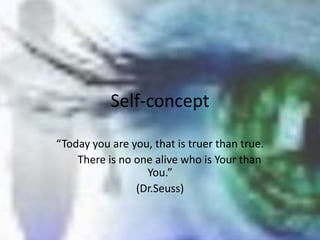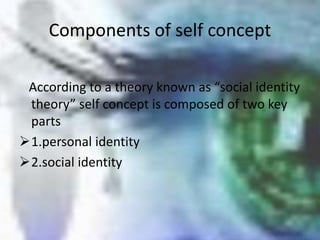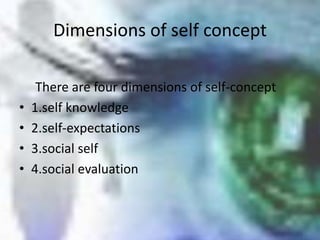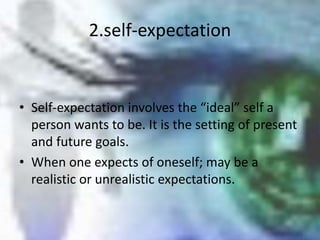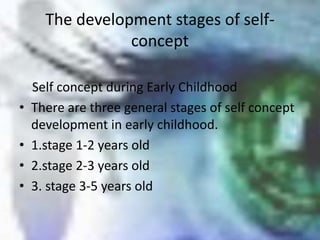The document discusses self-concept, which encompasses our perceptions of ourselves, including personal and social identities, and is influenced by various components such as self-image, self-esteem, and ideal self. It outlines the stages of self-concept development from early childhood through adolescence, highlighting changes in self-perception and social comparison. Theories by psychologists like Carl Rogers emphasize the importance of self-concept in shaping personality and the pursuit of self-actualization.
